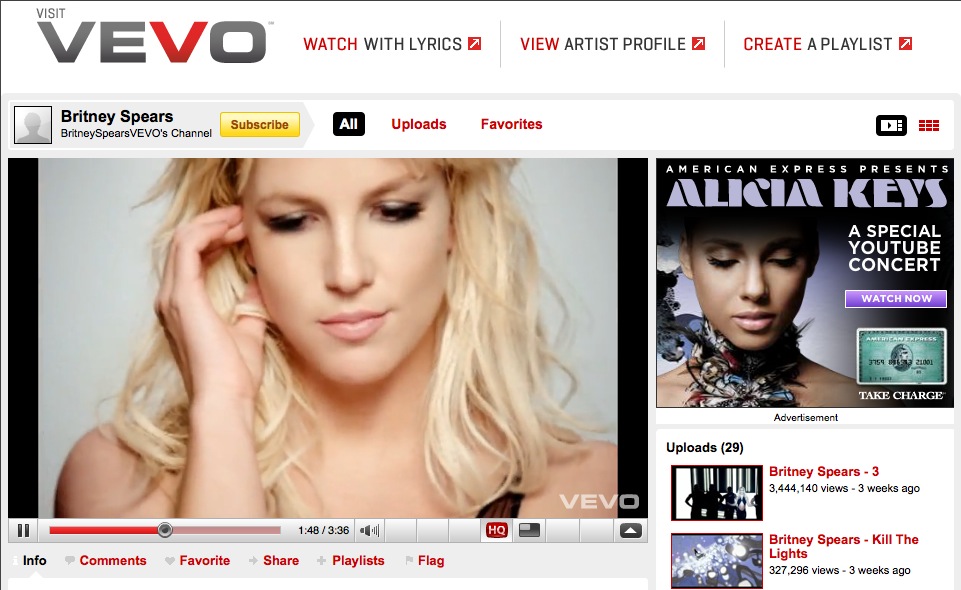Today at SXSW, Vevo announced a 24/7 channel coming to your traditional television via the Roku set-top box and the Xbox gaming console, but also to the Vevo web site and mobile platforms like Apple’s iOS, Google’s Android, Microsoft’s Windows Phone. As you know, Vevo streams official music videos licensed from record labels, both through its web site and via a dedicated YouTube channel, where most of its 52 million monthly uniques come from.
Vevo’s mobile apps will be updated with an around-the-clock curated experience of original programming, including live concerts and television shows. The experience is being described as multicast, meaning everyone gets to watch the same programming at the exact same time, regardless of the platform they’re accessing it from. Vevo TV will even feature a 24-hour schedule of static programming blocks, just like your regular dumb-ified tube…
CEO Rio Caraeff told Fast Company that Vevo TV was envisioned as a “fully programmed, linear, 24/7, lean-back experience”.
When users jump into a show late, they’ll be able to flag it to watch it on-demand later. Like traditional television, it will come with a 24-hour schedule of programming blocks, and soon feature hosts and VJs, operating much the same way as MTV in its early days.
TechCrunch has more:
Compared to everything that it had previously built, VEVO TV is decidedly anti-algorithm. In fact, as VEVO SVP of product and technology told me, internally the VEVO TV uses the slogan, “No algorithms allowed.”
Instead, it’s hired a team to program the 24-hour live channel with hour-long blocks of videos based specific themes or genres.
It will be interesting seeing how Vevo TV affects the company’s relationship with Google, especially with talk of a free YouTube music-streaming service Google’s apparently been working on.
The CEO says that “a little bit further down the road you’ll see us partner with the traditional cable and satellite networks, and bundle our on-demand videos and linear channel with the incumbent players.”
As for YouTube, Vevo TV “will really help us build our brand off of YouTube,” says Caraeff.
We’re not putting the channel on YouTube. We’re distributing the channel everywhere else.
That means fundamentally it’s a Vevo viewer, and it will help transform the perception as to who we are as a company off of YouTube.
It will differentiate us.
I possibly see problems ahead as YouTube and Vevo TV are vying for the same eyeballs.
A crack in their relationship is likely to occur as both firms pitch their ad units to advertisers. Vevo already has deals with some big name brands, like McDonald’s and State Farm which pledging to buy ad slots on Vevo TV on traditional television.
Google is also rumored to be interested in making a “huge investment” into Vevo, which launched in December 2008 as a joint venture music video web site operated by Sony Music Entertainment, Universal Music Group and Abu Dhabi Media.
Music videos on Vevo come from three of the big four record labels: Universal Music Group, Sony Music Entertainment and EMI, which doesn’t own a stake in Vevo. Google and Vevo share advertising revenue from Vevo’s YouTube channel.
At any rate, this Vevo TV thing sounds like the MTV for the 21st century we’ve been clamoring for, no?
